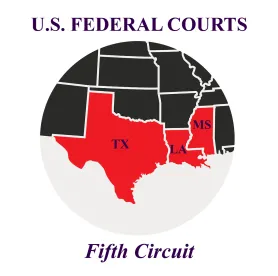Aww the Telephone Consumer Protection Act.
Ostensibly designed to prevent robocalls, books have been written in honor of its strangeness.
Chief Justice Roberts once remarked that it is the oddest statute he’s ever seen.
And I’ve built one of the country’s most popular legal blogs by doing nothing more than synthesizing the stunning number of decisions the vague statute produces.
It really is the perfect vehicle for havoc.
Massive statutory damages. Vague provisions. Uncapped class actions. An unduly long statute of limitations.
But perhaps worst of all– a history of retroactive changes that have caught callers in trap after trap after trap.
For instance, when the statute was first conceived it was almost certainly designed to apply only to random-fire marketing messages. But the TCPA was expanded in drips and drabs in piecemeal fashion, with each new extension dragging in more and more callers who became liable only long after the challenged conduct took place.
Folks were getting sued in multi-billion dollar lawsuits for speech that was legal at the time it was made and only became illegal after-the-fact. Wild times.
So while the TCPA was designed to prevent a narrow swatch of conduct, it ended up becoming a money-printing machine for plaintiff’s lawyers. Indeed, this remarkable expanding mushy little statute has made more plaintiff’s lawyers rich than any other enactment in our nation’s history.
It is perhaps fitting, then, that all TCPA liability may have just been completely wiped clean in a most unexpected and retroactive and ultimate sort of way– an expanding universe that suddenly collapsed into singularity without warning.
As I just reported, a Court in Louisiana has held that the TCPA–seemingly the crown jewel of the federal government’s robocall response— is dead. Or at least, was dead. Well, technically unconstitutional but in common parlance- it was dead.
For four and a half long years.
And yes, the Supreme Court just breathed some life back into it, but during its long cold zombie-like state from November, 2015 to July 6, 2020 the TCPA was simply unconstitutional.
That means that for all of those years– the true peak years of the robocall epidemic– all of those billions and billions of potentially illegal calls are now perfectly legal. Or at least, inactionable.
Billions and billions of calls. Trillions in potential exposure when factoring in the TCPA’s $500-$1,500.00 per call statutory damages.
In a strange way, this might be the biggest wealth transfer in history. Again, literally trillions in aggregate potential exposure just got wiped off of the books (not that it was ever actually on the books) of companies great and small.
There is something so poetic to it. Four and a half years the statute was unenforceable. Almost the precise length of the TCPA’s recognized statute of limitations. Its as if every American business–living so long under the terror of arbitrary and unjust liability of the strictest and most severe sort– was just granted a complete reprieve.
A second chance to engage with consumers without the Sword of Damocles hanging over their heads.
Well, that’s the sunny daydream anyway.
In truth, this is just ONE district court opinion. It was a thoughtful decision. Well briefed and well analyzed. It will be followed by many courts. Unfortunately, however, it will also be rejected–probably scornfully– by others.
And so the TCPA will lumber on in its way. The promised reprieve from the madness will just be a mirage. Here the TCPA will be unconstitutional. There it will be perfectly enforceable. Callers in one jurisdiction will face billions in exposure while callers in another will walk away free and clear. The same caller might be told its calls are legal one day, only to be told they are illegal the next.
We’ve seen it all before, of course. This is just par for the course in TCPAWorld.
And yet somehow the stakes just keep getting higher and higher. The swings more extreme. The outcomes less predictable.
The story of the statute just keeps getting odder and odder.
I may have to start paying attention to politics to calm my nerves.




 />i
/>i

